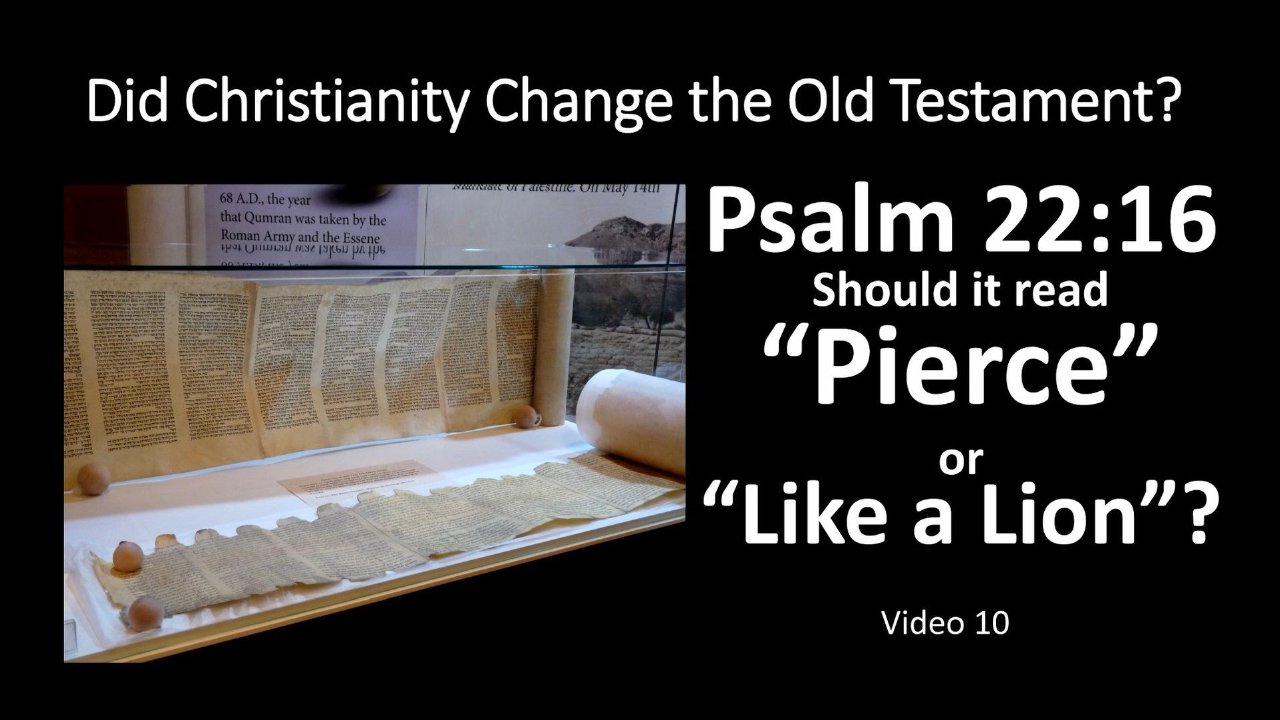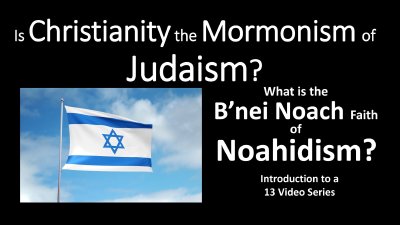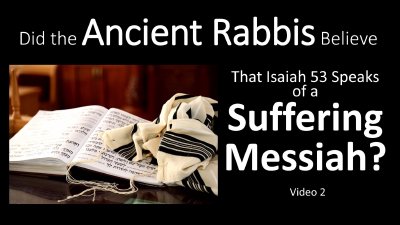Psalm 22 is a powerful prophecy about the Messiah Yeshua Jesus. While it was originally written by David to describe the trials he was facing during his flights from King Saul, there is much more described in the passage than a simple distressed soul. Words like "my bones are out of joint," "they are at my hands and my feet," and "they part my garments among them," seem to have found their ultimate fulfillment in the crucifixion death of Yeshua. Indeed, He Himself drew attention to this passage when he called out form the cross, the first words of this chapter: "My G-d, my G-d, why hast Thou forsaken me." (Psalm 22, Jewish Publication Society) Yet, Jewish rabbis vehemently object to the Christian idea that this prophecy was fulfilled in Jesus claiming that the original text in the Hebrew did not contain the word "pierce" in the phrase, "they have pierced my hands and feet" found in the Christian Bible. Is there a textual variant at this passage that originally read "pierced" at verse 16. We will examine their claims in this video.

10 Did Christianity Change Psalm 22:16?
Psalm 22:16 - Should it read "Pierce" or "Like a Lion"?
Christina R Darlington






